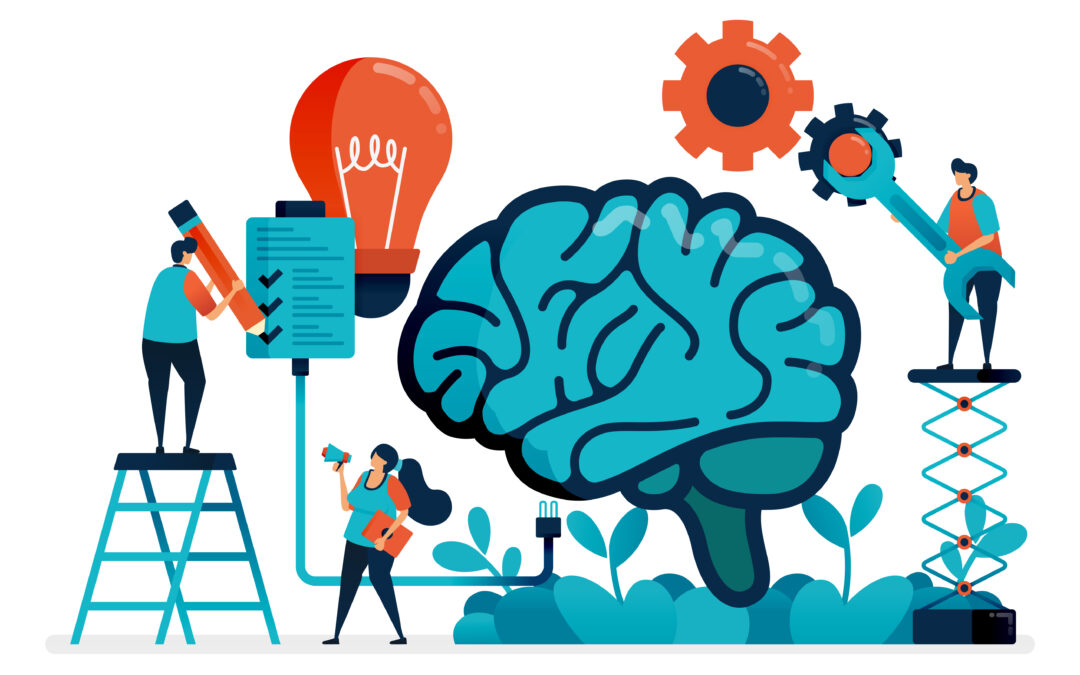Executive functioning refers to a set of cognitive processes that enable individuals to manage their thoughts, emotions, and behaviors effectively. These processes include skills such as attentional control, working memory, cognitive flexibility, inhibition, and planning. In individuals with ADHD, deficits in executive functioning are common and can manifest in difficulties with organization, time management, impulse control, and decision-making.
Research indicates that the neural networks underlying executive functioning are often impaired in individuals with ADHD. Neurobiological factors, such as differences in brain structure and neurotransmitter systems, contribute to these deficits. Additionally, environmental factors, including genetics, prenatal exposure to toxins, and early childhood experiences, can influence the development of executive functioning skills in individuals with ADHD.
Evidence-Based Strategies for Improving Executive Functioning:
- Cognitive-Behavioral Therapy (CBT): Cognitive-behavioral therapy is a well-established treatment approach that focuses on identifying and modifying maladaptive thoughts and behaviors. In the context of ADHD, CBT can help individuals develop strategies for improving executive functioning skills. This may include techniques such as cognitive restructuring, goal setting, problem-solving, and behavioral activation.
- Mindfulness Practices: Mindfulness practices, such as meditation and mindfulness-based stress reduction (MBSR), have been shown to improve attention, emotion regulation, and cognitive flexibility in individuals with ADHD. By cultivating present-moment awareness and nonjudgmental acceptance, mindfulness techniques can help individuals with ADHD become more attuned to their thoughts, emotions, and behaviors.
- Executive Function Coaching: Executive function coaching involves working with a trained coach or mentor to develop personalized strategies for overcoming executive functioning challenges. Coaches help individuals with ADHD identify their strengths and weaknesses, set realistic goals, and implement effective systems for organization and time management.
Practical Tips and Resources for Support:
- For Individuals with ADHD:
- Establish routines and structure in daily activities to enhance predictability and reduce impulsivity.
- Break tasks down into smaller, manageable steps to facilitate planning and organization.
- Use external aids such as timers, alarms, and visual schedules to stay on track and manage time effectively.
- Practice self-monitoring and reflection to identify areas for improvement and track progress over time.
- For Parents:
- Provide clear expectations and guidelines for behavior, and offer positive reinforcement for effort and progress.
- Collaborate with teachers and school staff to develop accommodations and supports tailored to your child’s needs.
- Encourage open communication and problem-solving skills to help your child navigate challenges effectively.
- For Educators:
- Implement strategies for classroom management that accommodate diverse learning styles and attentional needs.
- Provide scaffolding and support for executive functioning skills, such as organizing assignments and managing deadlines.
- Foster a strengths-based approach that emphasizes individualized learning and celebrates progress and achievements.
- For Mental Health Professionals:
- Stay informed about the latest research and evidence-based practices for ADHD and executive functioning.
- Offer comprehensive assessments to identify specific areas of executive functioning deficits and tailor interventions accordingly.
- Collaborate with other professionals, such as educators and executive function coaches, to provide coordinated care and support for individuals with ADHD.
Final Thoughts
Enhancing executive functioning skills is essential for individuals with ADHD to thrive in various aspects of life. By understanding the relationship between ADHD and executive functioning deficits and implementing evidence-based strategies and interventions, individuals with ADHD can develop the tools they need to overcome challenges and reach their full potential. With support from parents, educators, mental health professionals, and peers, individuals with ADHD can cultivate resilience, self-efficacy, and adaptive coping strategies to enhance their overall functioning and well-being.
